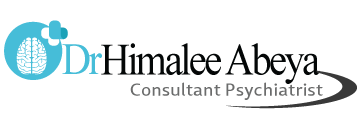Bipolar disorder is is condition related to significant changes in your mood-state or how you feel. It use to be called ‘Manic Depression.’ In this medical condition, you get extreme mood swings that bring emotional highs (or manic episodes) & lows. (or depressive episodes) You will not be able to sleep, will lack energy, and will find it hard to complete your daily activities.
Symptoms of Bipolar Disorder
There are various kinds of disorders and may include Mania or Hypomania.
- Type 1: If you have faced at-least one manic episode and may have had major depressive episodes.
- Type 2: If you have had at least one hypomanic episode (less intense than a manic episode) and may have had major depressive episodes but never had a manic episode.
Causes of Disorder
Although the exact cause for the disorder is not known, several factors may be attributed to it:
- When you are affected by this disorder, there may be some physical changes in the brain.
- The disorder may have a genetic predisposition.
For someone who already has the bipolar disorder, stress and lack of sleep could retrigger the condition. Similarly the use of illcit substances may make you vulnerable.
Diagnosis of the Disorder
So do you have this disorder? How can it be diagnosed? Here is how it may be evaluated:
- You should visit a doctor. He may conduct a physical exam and also conduct the lab tests to identify any medical problems that may be there.
- You may then be referred to a psychiatrist who will carry out a thorough assessment with diagnostic questions to evaluate your condition. You may have to fill out a questionnaire.
- You may be asked to record your mood daily, your sleep patterns or some other factors that could help you with the diagnosis and getting the right treatment.
- In some cases, your symptoms may be compared with the criteria for bipolar and related disorders in DSM-5.
There are sometime comorbidities which need to be further evaluated.
Treating the Disorder
Are you diagnosed with the condition? You need to meet an experienced psychiatrist. Depending on the needs, the treatment involves:
- You may have to take medications to balance the mood swings.
- Life-long treatment may be needed even though you feel better after some time. This is to stabilize your mood and prevent relapses. If you stop taking medication, you risk slipping back into mania or depression.
- If you have issues with substance use, you’ll have to undergo substance abuse treatment.
- In extreme conditions, hospitalization may be recommended in orde to first stabilize the condition before outpatient treatment.
Get In Touch With your Doctor Now!
You should visit your doctor if you have the slightest doubt about being affected by Bipolar Disorder.
Call @ (02)98742210 to Book an Appointment!
